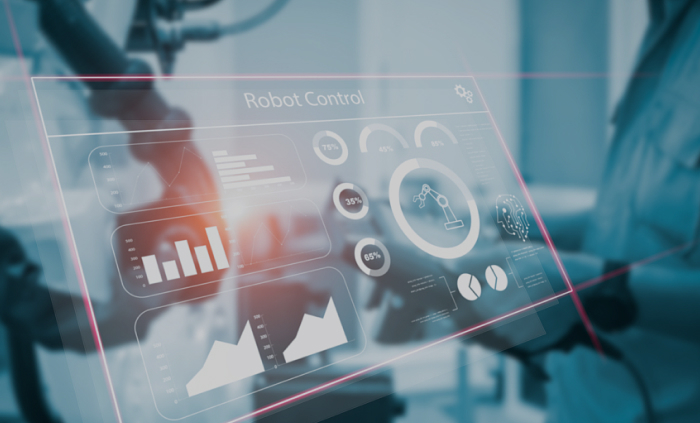The components are beneficial to understand the application of industrial robots, which can substitute for repetitive mechanical operation work, are efficient, and are a machinery that relies on its own power and control ability to achieve various functions!
The industrial robot is generally used in industrial manufacturing, automobile manufacturing, electrical appliances, food, etc. It can instead of repetitive mechanically operated work, is highly efficient, and is a machine that relies on its own power and control ability to achieve various functions. It can accept human command or operate according to a pre-programmed program. We now introduce the main components of industrial robots.
1、Body
The body is the base and actuator, including the arm, wrist and hand, and some robots have traveling mechanisms. Industrial robots have 6 degrees of freedom or even more, with usually 1 to 3 degrees of freedom of movement in the wrist; the drive system includes the power unit and transmission mechanism to make the actuators produce the corresponding action; the control system is to issue command signals to the drive system and actuators according to the input program, and to control them.
2、Drive system
The drive system of industrial robots is divided into three categories: hydraulic, pneumatic and electric according to the power source. According to the requirements of the three fundamental types can also be combined into a composite drive system. These three kinds of basic drive systems have their own features. At present, the mainstream is the electric drive system.
Due to the low inertia, large torque AC and DC servo motor and its supporting servo drive (AC inverter, DC pulse width modulator) is widely used. These systems do not need energy conversion, easy to use, flexible control. Most motors require a precision transmission mechanism to be installed behind them: a gearbox.
Its use of gear speed converter, the number of motor revolutions to decelerate to the desired number of revolutions, and get a larger torque device, thereby reducing the speed and increasing the torque,When a higher load, a single-minded increase in the power of the servo motor is very cost-effective, you can improve the appropriate speed range through the reducer to increase the output torque.
In addition, servo motors are susceptible to heat and low-frequency vibration under the low-frequency operation, and the long and repetitive work is not conducive to ensuring its accurate and reliable operation. The presence of precision gearmotors allows servo motors to operate at a suitable speed, increasing the rigidity of the mechanical body while outputting a larger torque. There are two mainstream types of gearboxes now: harmonic gearboxes and RV gearboxes.
- Home
- HI-MACH
-
Automatic welding machine
- Instrument type automatic welding machine series
- ACU-ARC 06/10V Diaphragm automatic welding machine
- ACU-ARC 06/16L Pipe/flange automatic welding machine
- ACU-ARC 06/16R Intersection line automatic welding machine
- HI-MACH 06S Automatic Welding Machine for small tubes and joints
- HI-ARC 15C SERIESCurved-tube Automatic Welding Machine
- ACU-ARC/B Diaphragm Automatic Welding Machine
- ACU-ARC/R Multi-functional Automatic Welding Machine
- MICRO-ARC Micro-beam Automatic Welding Machine
- ROBUST-ARC TC Automatic Cutting and Welding Machine
- Hard pipe automatic welding series
- HI-ARC 06/22L Automatic Welding Machine
- MACH-ARC 15/35L Automatic Welding Machine
- ACU-ARC 10-22R Multi functional automatic welding machine
- HI-ARC 06/10 Automatic Welding Machine
- HI-ARC 8/136 Automatic Clamp Type Welding Machine
- MACH-ARC 10/22 Automatic Pipe/Flange Welding Machine
- ACU-ARC-ARC 10/35 All-angle Automatic Welding Machine
- ETR-ARC All-Position Overlay System
- HI-ARC C Hot Wire Overlay System
- Solutions
- Application
- Service
- Information
- Contact







